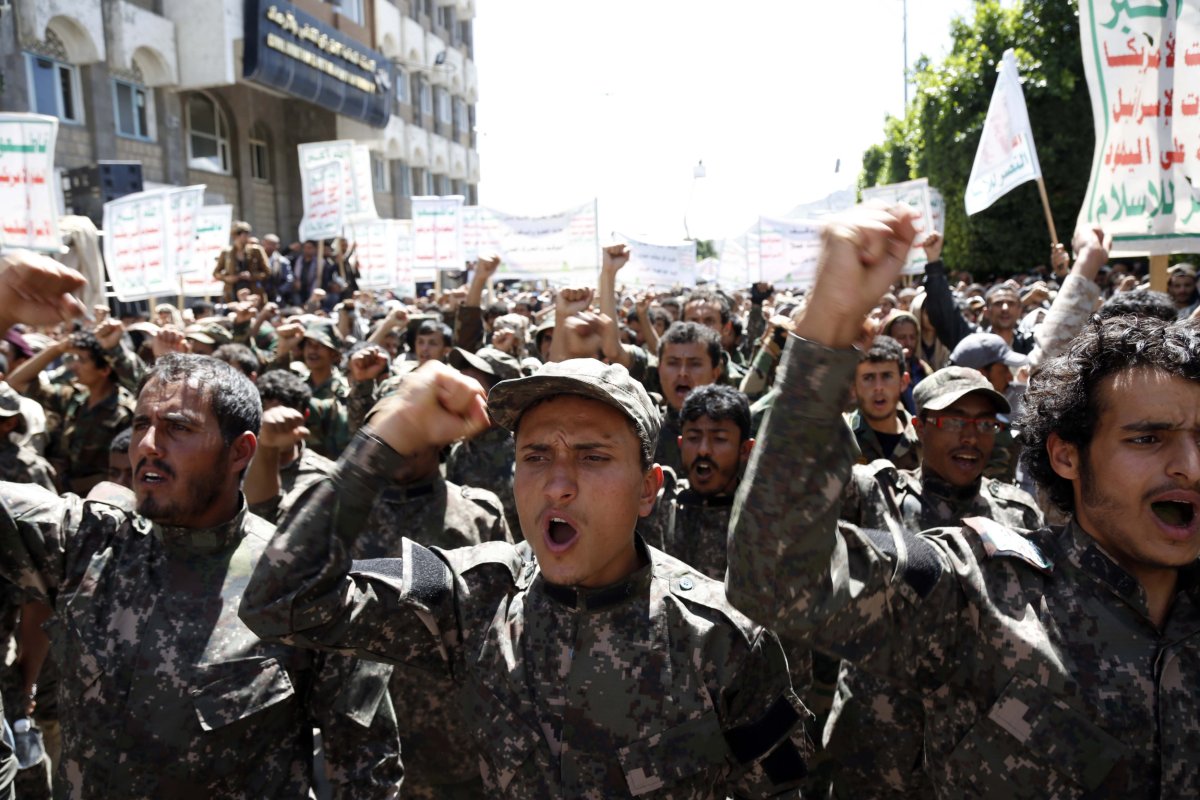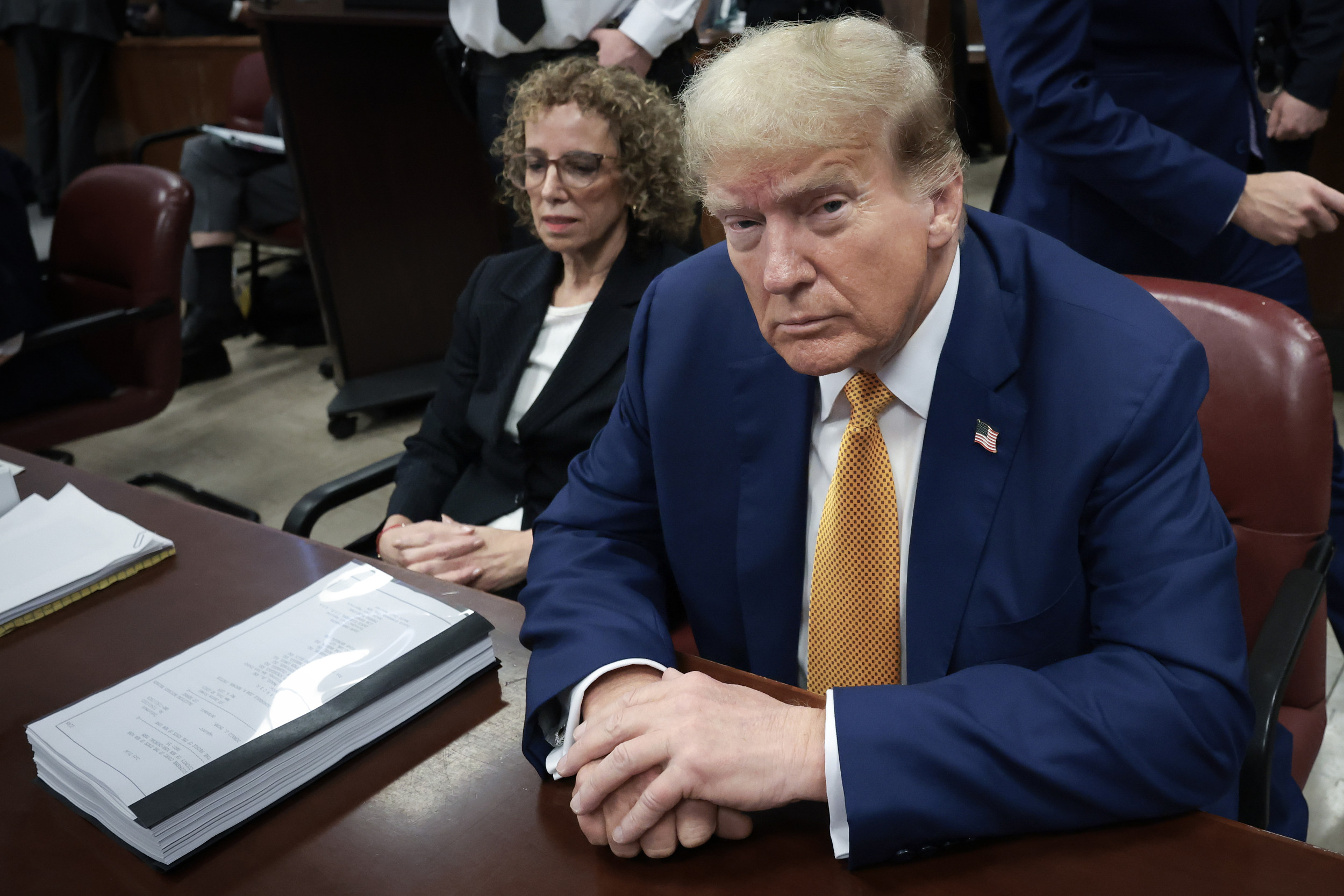As the Israel-Hamas conflict casts its ominous shadow across the Middle East, announcements by Ansarullah (known as the Houthis) forewarning the launch of drone and missile attacks against Israel heightens the specter of an expanding regional confrontation. Beyond the immediate security threat posed by these attacks lies an elaborate motive—far from direct opposition to Israel or a bid to assist Palestinians. Instead, the Houthis strategically deploy these actions as a means to fortify their domestic and regional posture, positioning themselves for the impending stages of the struggle for control over Yemen. It is clear to the close observer that these military actions serve as a strategic tool, reflecting both regional dynamics and a domestic political calculus.
Amid considerations for reclassifying the group as a Foreign Terrorist Organization , it is imperative for U.S. policymakers to gain a nuanced understanding of the group's motivations and its ties to the Islamic Republic of Iran in order to minimize the Houthi threat to U.S. allies and contribute to resolving the ongoing humanitarian crisis in Yemen.

Yemen's Ansarullah enters the fray.
On Oct. 31, Yahya Sare'e, a spokesperson for the Houthis, announced the group's intention to conduct a "third operation in support of our oppressed brethren in Palestine," through the deployment of high-impact missiles and drone attacks from Houthi controlled territories, "until the Israeli aggression stops." These actions would ostensibly come "out of a sense of religious, moral, humanitarian and national responsibility for the people of Gaza, in the face of the weakness of the Arab world, and of the collusion of some Arab countries with Israel." This announcement came as the Israel Defence Forces (IDF), and reportedly the Kingdom of Saudi Arabia, intercepted a missile and four drones over the Red Sea.
These attacks are indicative of an escalating trend of offensive actions by the Houthis, extending beyond the Arabian Peninsula. Notable incidents include attacks on the Saudi-Yemeni border, an intercepted attack on Israel by the US warship Carney, targeting a Saudi military post, an intended attack against Israel that inadvertently impacted two Egyptian Red Sea towns, and the Nov. 20 hijacking of a vessel with links to Israel in the Red Sea.
The Houthis have accumulated an expansive arsenal of precision-guided rockets, ballistic and cruise missiles, anti-ship projectiles, and water-borne improvised explosive devices—largely through the support of Iran. Since the March détente between Tehran and Riyadh, the extent of cooperation between Iran and the Houthi remains uncertain. Given that the agreement was intended to curtail Iran-Houthi defense cooperation, it is important to note that Iran-Houthi ties are predicated on a long history of collaboration, and recent developments in the Israel-Hamas conflict suggest that this collaboration is unlikely to diminish in the foreseeable future. Indeed, to better comprehend the Houthis attacks on Israel within the regional context, it is necessary to situate them against the group's historical ties to the Iran and its role in the "Axis of Resistance."
Driving factors for the Houthis.
Several regional and domestic factors contribute to the Houthis' strategic calculus prompting the military targeting of Israel, while also posing a continued threat for Saudi Arabia and its allies.
This first and foremost conveys to Tehran and the militia networks in Iraq, Syria, the Palestinian Territories, and Lebanon, the significant geopolitical influence wielded by their movement, and their relevance in key regions across the Arabian Peninsula, Arabian Sea, Red Sea, and the Bab al-Mandab.
Second, as negotiation gaps appear in the most recent round of talks between Saudi Arabia and Houthis, this offensive tactic permits the Houthis to bolster their negotiating position, short of reigniting a Saudi recommitment to war. As Saudi Arabia becomes increasingly interested in a face-saving exit, Riyadh has seemingly invested all of its chips in the Houthi basket, envisaging in them the power to represent a Yemen that they do not fully control. Meanwhile, the Houthis, fully aware of the internal dynamics pitting them against numerous domestic adversaries – including a Saudi-installed Presidential Leadership Council—recognize the necessity of exerting pressure on Riyadh to ensure a favorable turn in negotiation talks, before an anticipated resurgence of civil conflict in the years to come.
Third, attacks against Israel or U.S. positions, which constitute largely symbolic displays of aggression, successfully bolster domestic support and wider Arab and Muslim backing for the group. Domestically, the Houthis are facing mounting public criticism and dissent from those living under their control, exacerbated by prolonged unpaid public sector salaries and a deepening economic crisis marked by the price rise of basic commodities and a weakening local currency.
Regionally, although possessing a substantial military arsenal and the will to use it, their weapons systems are often too slow and inaccurate at a distance — a challenge particularly witnessed in targeting distant Israel. Yet while the attacks carry minimal military significance, they exert substantial political impact, primarily serving as a means for the Houthis to convey a powerful message to their constituents, supporters, and sympathizers, aiming to reinforce public allegiance to their cause.
U.S. Engagement Opportunities in Yemen
The ongoing conflict between Israel and Hamas is of critical concern to regional actors and the international community, with the United States wielding the most significant external influence over its course. In fact, the current crisis provides the U.S. with several opportunities across the region. In Yemen, it includes a three-pronged approach of continued humanitarian aid, counseling allies in Riyadh to pursue inclusive negotiations, and continued patrolling for illicit cargo and securing sea lanes.
Crucially, the U.S. should continue providing needed humanitarian aid, as more than 21 million people continue to rely on life-saving assistance. In a time of crisis, it is important for the U.S. to maintain goodwill toward average Yemenis, reinforcing the commitment that the U.S. will not abandon them.
Concurrently, the US should encourage Riyadh to continue negotiations with the Houthis. However, it is imperative that negotiations involve members of the opposition, Yemeni civil society, key stakeholders, and communities representing a wide spectrum of perspectives. Formulating a strategy that facilitates a negotiated resolution with inclusion and buy-in from the general population would help mitigate the potential vacuum and civil strife that the Houthis are banking on.
To successfully pursue the previous two efforts, the US would be misplaced to designate the Houthis as a foreign terrorist organization, having removed them in 2021. The designation architecture is of primary symbolic importance and much less consequential for a group that has historically accumulated funding through means such as economic profiteering, resource theft, and illegal taxation. Further, the designation both hampers humanitarian efforts and aid to Yemenis, and undermines the potential for U.S. diplomats to mediate in critical peace talks.
In the meantime, the US should continue to conduct maritime patrols around Yemen. A US presence serve the dual purpose of preventing weaponry from reaching Yemeni soil and assists in knocking down any missiles, drones, or piracy that threaten open sea lanes.
A successful US strategy may simultaneously see a diminished Houthi threat to US allies and interests and contribute to resolving the world's most severe humanitarian crisis in Yemen.
Masoud Mostajabi is a deputy director at the Atlantic Council's Middle East Programs.
The views expressed in this article are the writer's own.
Uncommon Knowledge
Newsweek is committed to challenging conventional wisdom and finding connections in the search for common ground.
Newsweek is committed to challenging conventional wisdom and finding connections in the search for common ground.
About the writer
To read how Newsweek uses AI as a newsroom tool, Click here.






